Adult Hyperactivity: Signs, Causes, and Solutions to Know
Adult hyperactivity remains a subject shrouded in mystery. It is often reduced to a simplistic image: that of constant agitation, excessive nervousness, or a temporary inability to concentrate on a task. However, the reality is far more complex. Behind this appearance lies a recognized disorder, scientifically studied and with profound consequences: ADHD, or attention deficit hyperactivity disorder .
Long associated only with childhood, ADHD often continues into adulthood. Symptoms evolve, transform, and sometimes hide behind subtle behaviors: inattention, impulsivity, organizational difficulties, chronic fatigue, or sleep disorders . It's no longer just the physical restlessness of a child in class or while reading that is noticeable, but rather more internal manifestations, profoundly affecting personal life, work, and emotional balance.
Often misunderstood and underestimated, this attention deficit disorder can be the cause of significant distress, past academic failure, and addiction and comorbidities in adulthood . Without appropriate management, it disrupts the lives of many people, limiting their plans, impacting their relationships, and exacerbating their feelings of inadequacy or disorganization.
However, there are resources, tools, and multiple approaches available: medical, psychotherapeutic, and natural. Understanding the diagnosis, identifying ADHD symptoms, and exploring solutions can open a path toward a more peaceful daily life. This article invites you to explore this topic, addressing the causes, consequences, and implementation strategies that allow affected adults to regain balance and serenity .
What is ADHD?
ADHD is defined as a neurodevelopmental disorder . It generally combines three dimensions: inattention , impulsivity , and hyperactivity . While it was long believed to only affect children, research shows that it often persists into adulthood, sometimes with different manifestations.
Definition and diagnostic criteria
The diagnosis of ADHD is based on the criteria of the DSM-5 , the reference manual for psychiatrists. For a diagnosis to be established, symptoms must be present before the age of 12, manifest in several contexts (school, family, leisure), and have negative consequences on the person's life . Screening requires a rigorous process : questionnaires, clinical interviews, and sometimes additional examinations.
Diagnosing ADHD in adults can be complex because the condition evolves throughout life. In children , hyperactivity is often visible: motor restlessness, inability to sit still in class or while reading . In contrast, in adults , the manifestations are more subtle: procrastination, organizational difficulties, lack of concentration, sleep disorders, and relationship problems .
Consequences for daily life
Without treatment, ADHD can lead to academic failure and subsequent difficulties in the workplace. Affected adults often exhibit a tendency towards addiction, an increased exposure to mood disorders and psychiatric comorbidities . Studies also show that the syndrome is linked to decreased motivation, significant distractibility, and memory problems .
It should not be forgotten that attention deficit disorder affects a much wider population than one might imagine, and that underdiagnosis is still common. Many people never consult a specialist doctor and attribute their symptoms to their personality. However, a caring general practitioner can guide towards appropriate screening and an appointment with a specialized healthcare professional.
Natural solutions for managing hyperactivity and its symptoms
Managing ADHD doesn't rely solely on medication . While medication can reduce some ADHD symptoms, its side effects (loss of appetite, sleep disorders) lead many patients to seek alternatives or complementary treatments.
Bach Flower Remedy Support
Among natural approaches, Bach Flower remedies hold an important place. Derived from traditional herbalism, they help to restore emotional balance and a mind-body equilibrium . As the power of Bach Flower remedies reminds us, they are particularly suited to calming impulsiveness, irritability, and difficulty managing strong emotions. Biofloral, for example, offers natural solutions to promote emotional balance, thus contributing to the reduction of inner distress.
Dietary supplements and emotional balance
Certain supplements can also support the daily lives of adults with ADHD. Plant-based, mineral, or vitamin complexes promote serenity and improve concentration. Magnesium , for example, is known to reduce irritability and support cognitive function, while B vitamins help regulate the nervous system and reduce difficulties related to inattention. Iron and zinc , meanwhile, play a key role in brain function and can help reduce distractibility.
The role of sleep
ADHD in adults is often accompanied by sleep problems : difficulty falling asleep, nighttime awakenings, chronic fatigue, and insomnia. However, lack of rest exacerbates distractibility and organizational difficulties. To improve these aspects, there are natural solutions such as Bach flower remedies, which are known to promote sleep . By acting on an emotional level, they help calm intrusive thoughts and inner hyperactivity that prevent restful sleep.
Adopting good sleep hygiene (regular hours, reducing screen time in the evening, relaxing activities such as reading or meditation) is also an essential strategy. Coupled with natural solutions, these habits facilitate falling asleep, improve the quality of rest and reduce the consequences of ADHD in adults.
ADHD in Adults
Different manifestations of childhood
ADHD in adults is characterized by a more internalized form. The hyperactive child no longer always expresses their agitation through movement, but through mental behavior : a stream of thoughts, an inability to focus, a feeling of being "overwhelmed." A diagnosis of ADHD is possible at any age, even after adolescence or adulthood.
Adults affected often describe a tendency to procrastinate, to be scattered, and to have difficulty fulfilling their responsibilities . Their work suffers : delays, forgetfulness, reading errors, loss of evidence or essential information.
Comorbidities and associated aspects
ADHD in adults does not occur in isolation; it is frequently accompanied by comorbidities. The most common are mood disorders, addiction, sleep problems, and sometimes anxiety . These aspects worsen the consequences of the disorder and require multidisciplinary management.
Some studies also show a higher frequency of addiction to alcohol, tobacco, or psychoactive substances in people with ADHD . Prolonged exposure to stress exacerbates the discomfort and the consequences on family life.
The appropriate support
Implementing a global strategy is essential. It includes:
- Medical follow-up with a specialist doctor or a trained general practitioner.
- Appropriate treatments, sometimes medication, sometimes psychotherapy.
- Using practical tools: agendas, reminders, and a structured organization of activities.
- Using complementary approaches: meditation, sophrology, Bach flower remedies, dietary supplements.
It is essential that the patient receives caring support , social assistance, and regular follow-up. ADHD is not a foregone conclusion : well-managed care allows for a significant improvement in quality of life.
A comprehensive look at ADHD
It is estimated that ADHD affects approximately 4 to 5% of the adult population . This frequency highlights the importance of early detection in childhood and screening at any point in life. Scientific evidence is now strong: ADHD can persist well beyond childhood, sometimes without apparent hyperactivity.
Therefore, diagnosing ADHD requires increased vigilance on the part of parents, teachers, but also doctors and healthcare professionals . The definition of the disorder also includes the possibility of a form without hyperactivity, focused on attention deficit.
A daily life to rebuild.
ADHD in adults is not an end in itself. Certainly, it complicates relationships, work, managing responsibilities, and emotional stability. But with a clear diagnosis, personalized care, and the support of natural solutions, each patient can relearn how to better manage their behavior, emotions, and difficulties .
The end of the journey is never fixed: on the contrary, it can mark the beginning of a path towards a better understanding of oneself and the establishment of habits that support well-being in everyday life. ADHD in adults is not a given, but a component of existence that can be tamed through a clear diagnosis, appropriate care and personalized solutions.
Adults concerned should keep in mind that they have specific needs, but that there are also many resources available to support them: medical follow-up, psychological support, treatments, but also natural approaches such as Bach Flower remedies, nutritional supplements, or relaxation methods. These tools, working together, can transform difficulties into opportunities for personal growth , paving the way for a more serene daily life.
Each patient progresses at their own pace, with their own strengths and weaknesses . What matters is not to face the disorder alone, but to allow oneself to seek support, to ask a specialist or general practitioner for advice, and to embrace natural solutions as valuable allies . In this way, ADHD becomes not an insurmountable obstacle, but an invitation to reinvent one's inner balance and write a new chapter in one's life .










Leave a comment